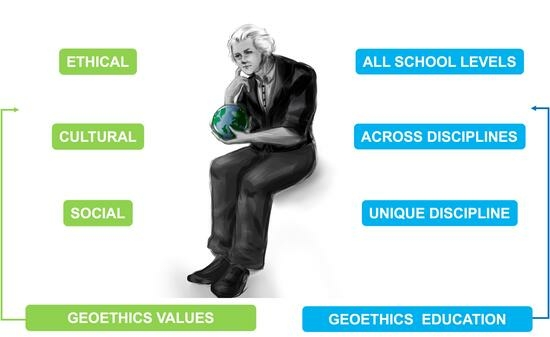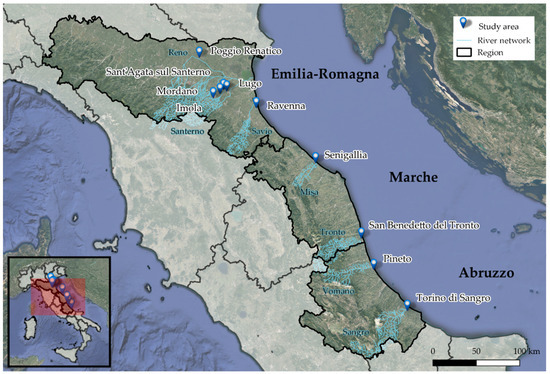Ethics in Geosciences
A topical collection in Geosciences (ISSN 2076-3263).
Viewed by 14299Editors
Interests: environmental and applied geomorphology; hazard and risks analysis; dissemination and divulgation of geology
Interests: palaeogeographic and palaeotectonic evolution of the Southern Apennines – Calabrian Arc (Central Mediterranean) fold and thrust belts; Neogene to Quaternary tectonics, basin analysis and relationships between tectonics and stratigraphic architecture; geological modeling; geological and thematic cartografy
Interests: communication; risk prevention; earth and society; landscape; ecology
Interests: disaster studies; human geography; geoethics; risk perception and communication
Special Issues, Collections and Topics in MDPI journals
Topical Collection Information
Dear Colleagues,
What is geoethics? Let us start from the definition of the key terms which make up the word: ethics is a system of moral principles and is defined as the rules of conduct recognized with respect to a particular class of human actions or a particular group or culture. “Geo-logy” means “rational reasoning/discourse on the Earth”, or more simply “study of the Earth”.
“Nature” is the object of interest in the history of geology. It is defined as the foundation of existence, in its physical and biological settings, or as a set of characters in a certain region still not changed by “Civilization”.
Integrating these three essential concepts, it is almost automatic to see clearly how deep and innate the link between geology and ethics is, and how it is important to develop something more than a naturally ethical behavior in practice, with the goal of recognizing and reaching strategically ethical objectives on a global scale—first of all, survival itself and a harmonious relationship between human beings and nature.
So, the proposed collection aims to provide a contribution to the scientific field of geoethics, a growing field that is extremely rich in new perspectives. In parallel, the future of our planet appears to be deeply linked to geoethics. The extraordinary interest in this new field of research, with a strong appeal to translate the results of these reflections into action, testifies the social need of this innovative discipline born from the intersection between philosophy, geography, sociology, and geology.
Through this collection, we would like to contribute to the geoethics debate in order to achieve a concrete discussion on risk prevention through the presentation of case studies and theoretical approaches. Special attention will be devoted to unconventional ways of interpreting the role of geoscientists in referring to ethics (after all, that is the core concept in everyone’s life), starting from ideas, experiences, and results achieved by the geoethics research community, but also from the dialogue between scholars of human, natural, and social sciences to face the great challenges related to global change.
Dr. Piero Farabollini
Prof. Dr. Francesco Muto
Dr. Francesca Romana Lugeri
Dr. Francesco De Pascale
Collection Editors
Manuscript Submission Information
Manuscripts should be submitted online at www.mdpi.com by registering and logging in to this website. Once you are registered, click here to go to the submission form. Manuscripts can be submitted until the deadline. All submissions that pass pre-check are peer-reviewed. Accepted papers will be published continuously in the journal (as soon as accepted) and will be listed together on the collection website. Research articles, review articles as well as short communications are invited. For planned papers, a title and short abstract (about 100 words) can be sent to the Editorial Office for announcement on this website.
Submitted manuscripts should not have been published previously, nor be under consideration for publication elsewhere (except conference proceedings papers). All manuscripts are thoroughly refereed through a single-blind peer-review process. A guide for authors and other relevant information for submission of manuscripts is available on the Instructions for Authors page. Geosciences is an international peer-reviewed open access monthly journal published by MDPI.
Please visit the Instructions for Authors page before submitting a manuscript. The Article Processing Charge (APC) for publication in this open access journal is 1800 CHF (Swiss Francs). Submitted papers should be well formatted and use good English. Authors may use MDPI's English editing service prior to publication or during author revisions.
Keywords
- Earth sciences
- geoethics
- geography
- global change
- Nature
- society
- risk
- prevention









